The views expressed in our content reflect individual perspectives and do not represent the authoritative views of the Baha'i Faith.
In many ways, a falcon’s physical senses and abilities are much more impressive than ours.
This two-pound bird can reach speeds higher than most small airplanes and is the fastest animal ever measured. Their binocular vision is also eight times better than humans, and they can withstand a gravitational force that is comparable to 25 times the force of gravity pushing on your body.
Admired for their extraordinary speed, sight, and strength, these birds inspire more than just football mascots and superhero characters. Falcons also symbolize those holy and spiritually strong souls who dedicated their lives to spreading the unifying messages of the Baha’i Faith.
Falcons: Symbols of Spiritual Souls

Áqá ‘Alíy-i-Qazvíní was one of the earliest followers of the Bab, the forerunner of Baha’u’llah, and Baha’u’llah, the prophet and founder of the Baha’i Faith.
Baha’u’llah’s son, Abdu’l-Baha, said:
He was an excellent friend and comrade, happy, delightful; favored by Bahá’u’lláh, respected by the friends, shunning the world, trusting in God. There was no fickleness in him, his inner condition was always the same: stable, constant, firmly rooted as the hills.
He was so patient and serene despite the suffering he endured for spreading the revolutionary teachings of the Baha’i Faith, such as the independent investigation of truth, the abolition of all forms of prejudice, the agreement of science and religion, and the equality of women and men.
One time, while he was at his home in Qazvín, Iran, “he was caught by the malevolent and they beat him so brutally over the head that the effects stayed with him till his dying hour.”
Abdu’l-Baha said:
They abused and tormented him in many ways and thought it permissible to inflict every kind of cruelty upon him; yet his only crime was to have become a believer, and his only sin, to have loved God. As the poet has written, in lines that illustrate the plight of Áqá ‘Alí:
By owls the royal falcon is beset.
They rend his wings, though he is free of sin.
‘Why’—so they mock—‘do you remember yet
That royal wrist, that palace you were in?’
He is a kingly bird: this crime he did commit.
Except for beauty, what was Joseph’s sin?
The “royal falcon” symbolizes Áqá ‘Alí, a noble and magnanimous man with a big heart, who did not deserve the taunts and abuse of the “owls”— those people who were prejudiced against the Baha’is and inflicted harm upon them. But like the falcon, Áqá ‘Alí remained strong with a smile on his face despite the fact that he was ill until the day he died.

Another early Baha’i and royal falcon who endured intense suffering was Jináb-i-Ismu’lláhu’l-Aṣdaq. Because Ismu’lláh openly shared the teachings of the Baha’i Faith, he and other Baha’is were imprisoned at Fort Ṭabarsí in Iran where they went eighteen days without food and withstood the onslaught of cannon balls from siege guns.
He was later taken to the chiefs of Mázindarán to be killed when,“God put it into one man’s heart to free him from prison in the middle of the night and guide him to a place where he was safe,” Abdu’l-Baha recalled.
Despite the traumatic ordeals he faced, Ismu’lláh remained staunch in his faith and shared the Baha’i principles even more widely after he was free. Abdu’l-Baha said:
He was like a surging sea, a falcon that soared high. His visage shone, his tongue was eloquent, his strength and steadfastness astounding. When he opened his lips to teach, the proofs would stream out; when he chanted or prayed, his eyes shed tears like a spring cloud.
His face was luminous, his life spiritual, his knowledge both acquired and innate; and celestial was his ardor, his detachment from the world, his righteousness, his piety and fear of God. …He was a great personage, perfect in all things.
The Falcon: A Symbol of Baha’u’llah

These consecrated souls were not the first royal falcons. They were inspired by the light of Baha’u’llah, who Baha’is believe is the latest messenger sent from God.
Baha’u’llah wrote:
I was but a man like others, asleep upon My couch, when lo, the breezes of the All-Glorious were wafted over Me, and taught Me the knowledge of all that hath been. This thing is not from Me, but from One Who is Almighty and All-Knowing. And He bade Me lift up My voice between earth and heaven, and for this there befell Me what hath caused the tears of every man of understanding to flow.
Bahá’u’lláh suffered 40 years of imprisonment, torture and exile for annoucing that a new revelation had been born.

In English, Baha’u’llah means “The Glory of God,” and Baha’is believe that His coming is foretold in many of the world religions.
The Baha’i writings say:
To Israel He was neither more nor less than the incarnation of the “Everlasting Father”, the “Lord of Hosts” come down “with ten thousands of saints”; to Christendom Christ returned “in the glory of the Father”; to Shí’ah Islám the return of the Imám Ḥusayn; to Sunní Islám the descent of the “Spirit of God” (Jesus Christ); to the Zoroastrians the promised Sháh-Bahrám; to the Hindus the reincarnation of Krishna; to the Buddhists the fifth Buddha.
Baha’u’llah lived a life of service to humanity, always seeking to aid and uplift the poor, neglected, and downtrodden. He wrote:
I cheer the faint and revive the dead. I am the guiding Light that illumineth the way. I am the royal Falcon on the arm of the Almighty. I unfold the drooping wings of every broken bird and start it on its flight.
Bahá’u’lláh passed away at the age of 75 in 1892.
May we all strive to become as spiritually strong and steadfast as Áqá ‘Alí and Ismu’lláh, knowing that Baha’u’llah, the royal Falcon, is watching over us, along with the other prophets of God, ready to light our path and start us on our flight.


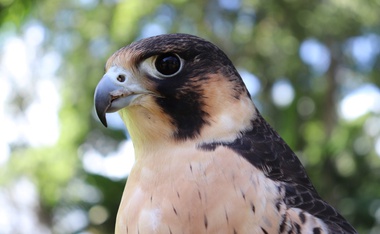

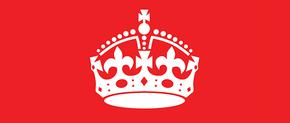
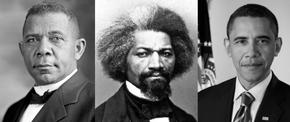







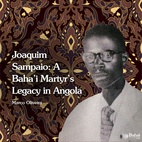
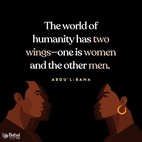


Comments
Sign in or create an account
Continue with Googleor